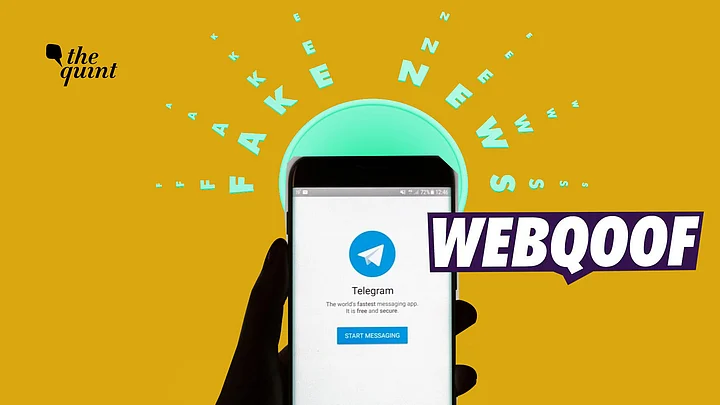On 25 August, Pavel Durov, the CEO of popular messaging app Telegram, was arrested by the French police after his private jet landed at Le Bourget Airport in Paris. He has been accused of failing to take steps to curb criminal uses of the app which he founded in 2013, including drug trafficking, child sexual content, and fraud.
Telegram has been accused of failing to cooperate with law enforcement and has previously denied having insufficient moderation. It remains defiant in the face of these allegations. The company has vehemently rejected all claims, dismissing them as "absurd" and asserting that Durov is fully transparent.
In a recent public statement, Telegram reaffirmed its adherence to European Union (EU) regulations, including the Digital Services Act, and emphasised that its content moderation approach aligns with industry norms. The platform's robust rebuttal prompts consideration of whether these accusations are substantiated or if they potentially represent an instance of governmental overreach.
Two Global Trends
Durov, often called the "Mark Zuckerberg of Russia", was born as a Russian and founded VKontakte (now VK), Russia's largest social network, but was forced to sell his stake and escape the country in 2014. He now operates out of Dubai, where Telegram is based and holds dual citizenship in the United Arab Emirates and France.
Today, Telegram is one of the world's most popular messaging apps, known for its emphasis on privacy and security. It is particularly popular in Russia, Ukraine, Iran, and many former Soviet Union states. The app was banned in Russia in 2018 after Durov refused to hand over user data, but the ban was reversed in 2021.
Durov's arrest and the challenges faced by him and Telegram highlight two major currents around the world.
The first one is the ongoing tension between tech companies prioritising user privacy and governments seeking access to data for national security purposes. This conflict reflects broader debates about digital rights, surveillance, and the balance between security and privacy in the digital age.
Secondly, we have to look at the wider global impact of such an arrest. The move is being seen as a victory for many governments seeking to exert greater control over the internet that do not necessarily follow democratic principles in the governance ecosystem.
Telegram has been a key platform for dissident groups and activists in countries like Russia, Iran, and China, where freedom of expression is heavily restricted. The platform's popularity in these regions has made it a thorn in the side of authoritarian governments, who have repeatedly called for greater control over online communication.
And what about the geopolitical impact of the arrest? Russia and the UAE have asked for consular access, and as per reports, Durov refused Russian consular protection and a UAE consular visit but agreed that the latter's embassy be kept updated on his case.
Telegram in India
Closer to home, in India, as per reports, the Ministry of Electronics and Information Technology (MeitY) has requested the Ministry of Home Affairs (MHA) to investigate pending complaints against Telegram and explore potential actions.
While CERT-In (Computer Emergency Response Team), under MeitY, primarily focuses on cyber security offences rather than cybercrime, numerous news reports highlight the rampant financial fraud occurring within Telegram groups. These groups often employ honey trap tactics, where admins gain the trust of investors by initially providing profits, only to disappear when substantial amounts are invested.
Additionally, Telegram has become a hub for various illicit activities, including sex work and part-time job schemes, which are proving to be lucrative. The platform's rise in popularity can be attributed to the availability of free cinema and entertainment content, but this has also led to issues related to copyright infringement and breaches of intellectual property rights.
Telegram’s scrutiny in India is also due to its alleged involvement in share market fraud among other things. On 24 July 2024, SEBI uncovered a stock price manipulation scheme operating through the platform and a Telegram group moderator was earning Rs 20 lakh in fee for manipulating the stock prices of a company manufacturing steel sheets.
Striking the Right Balance
Telegram was founded with a strong commitment to user privacy and freedom of expression. The platform offers end-to-end encryption for "secret chats" and client-server encryption for regular chats.
It also allowed users to create large group chats and channels that could reach thousands of subscribers anonymously. These features, combined with Telegram's stated policy of not cooperating with governments to access user data, made it an attractive option for those seeking to avoid surveillance.
While privacy is undoubtedly a fundamental right, Telegram's robust protections have, unfortunately, been used by terrorist organisations to spread propaganda, recruit new members, and coordinate attacks. The platform's large group chats and channels have been particularly problematic, as they allow for the rapid dissemination of harmful content to wide audiences.
Telegram has consistently resisted pressure from governments and law enforcement agencies, arguing that compromising security for some users would ultimately compromise it for all.
The central question is whether Telegram has struck the right balance between protecting user privacy and addressing legitimate law enforcement concerns.
The platform's near-absolute stance on privacy has tipped the scales too far, creating a space where dangerous activities can flourish unchecked. Possibly, Telegram could do more to cooperate with authorities in cases involving serious crimes or national security threats, without compromising the privacy of law-abiding users.
Going Forward
While it is understood that strong encryption and privacy protections are essential in an era of increasing digital surveillance to elude government overreach, finding a middle ground between these competing interests is prudent. It is challenging but not impossible. Some potential approaches include:
a) Improved content moderation: While respecting private communications, Telegram could invest more in detecting and removing illegal content from public channels and groups.
b) Targeted cooperation: It could develop a framework for cooperating with law enforcement in specific, high-stakes cases involving imminent threats to life or national security while maintaining strong protections for the vast majority of users.
c) Increased transparency: The platform could provide more detailed reporting on its efforts to combat illegal activities, building trust with both users and authorities.
d) User empowerment: Telegram could enhance tools for users to report illegal content or suspicious activities, leveraging the community to help police the platform.
Durov's case illustrates the complex challenges tech companies are facing in the 21st century. As human lives become increasingly digital, the tension between privacy and security will only grow more pronounced.
Moving forward, Telegram and similar platforms must find innovative ways to uphold individual freedoms while also addressing the legitimate needs of law enforcement and societal security. The French and Indian investigations will possibly throw many answers and a way forward to address the balance.
(Subimal Bhattacharjee is a Visiting Fellow at Ostrom Workshop, Indiana University Bloomington, USA, and a cybersecurity specialist. This is an opinion piece. The views expressed above are the author’s own. The Quint neither endorses nor is responsible for them.)





